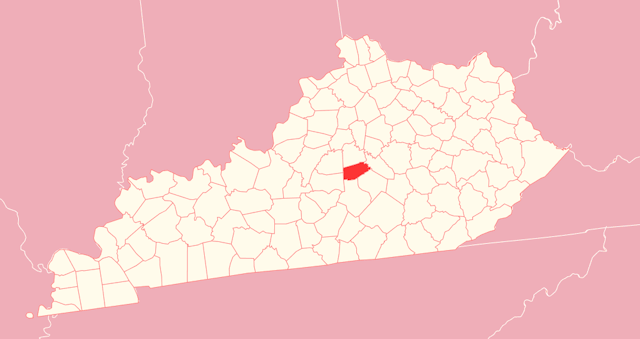Rehabs in Boyle
Located in the US state of Kentucky, Boyle county has a population of 30,614 people as of the 2020 census. Danville is the seat.
What makes the county unique is that it has a school district that serves all residents with 3 elementary schools, one middle, and one high school. Also, there is a state-operated school that provides education to Kentucky’s hard-hearing and deaf children.
Despite all these privileges that the residents have, one of today’s most relevant issues is present here too. People suffer from substance addiction and look for rehabs in Boyle county that will treat their health problems.
Available Rehab Facilities
Treatment facilities in Boyle assist patients with drug/alcohol abuse issues, pain treatment, and eating disorders. In general, here addicts pass 30-, 60- or 90-day(long-term) recovery programs.
The first step after you arrive at the facility is starting a drug/alcohol detoxification. To ensure the safety and appropriateness of this procedure, you had better undergo it with the monitoring of medical professionals.
Secondly, the patients attend group or individual therapies. Most treatment centers indicate this step as the beginning of the road to recovery.
For the cure to be successive, there also should be a plan for when you leave the facility. It can be either Alcoholics Anonymous or engaging with friends and family. No matter what you choose, the best rehabs in Boyle provide counselors who guide you in creating a plan to stay sober.
Inpatient and Outpatient Programs
Inpatient(residential) rehab consists of 24-hour care in a live-in setting. At one location patients get full treatment services, including behavioral and medical therapies.
Outpatient programs offer flexibility to those who can’t take time away from their everyday lives, school, or work. Visits usually are several times every week for a few hours at a time.
The centers available throughout the province can work either on an outpatient or inpatient/residential basis. Both facility types will provide authorized mental health counselors and other medical professionals as staff members.
The outpatient clinics will offer counseling and mental issues services, yet not require overnight stays at the setting. The inpatient or residential clinics claim prolonged stays to fully cure mental disorders.
Payment Methods at Rehab Centers in Boyle
Before choosing any rehabilitation type you need, it is vital to think about the associated costs. can differ from one program to another, but you also have several other options to pay for a cure. Private rehab centers provide a wide collection of care levels and programs but at expensive prices.
Some facilities in this province are regarded as upscale or luxury. They offer luxurious remedies along with mental health procedures. Yet, these are more expensive than non-luxury clinics.
Luckily, many health insurance providers pay for at least some of the abuse treatment cost. Medicare and Medicaid are also covering services for substance use disorder, yet not every rehab center in Boyle accepts them. You should make it clear for yourself beforehand through your health insurance.
One of the well-known rehabilitation settings with affordable payment options is the Bluegrass. It is an accredited drug rehab located in Danville, Kentucky. The methods provided here include alcohol abuse, dual diagnosis (co-occurring issues), opioid addiction, substance dependence, and other substance disorders.
The county residents may pay through health/military insurance, self-pay/cash, Medicaid, and Medicare.
Paying With No Insurance
In case you don’t own an insurance plan or are not completely covered, you may pay for your recovery without it. Many private settings provide financing options or may advise you on alternate methods to fund healing.
Kentucky also has state-funded rehabs that are a good low-cost alternative, yet only a few people qualify for these. If you still search for other remedy options, you may as well look for local resources in your area. For people in need, there are also some charities and organizations offering low-cost/free addiction resources to help.
Forcing Teens to Pass Rehabilitation
Drug/alcohol misuse is a problem that affects not only the adult population. Unluckily, more and more teens become victims of addiction disorders. The statistics of the National Survey on Drug Use and Health have shown that more than 2 million kids (aged 12-17) are addicted to toxic substances.
When under the influence of drugs, teens develop psychologically and emotionally different needs. Unlike most adults, teenagers are not willing to voluntarily pass healing courses. So, very often parents have to force them to enter rehabilitation.
This is not a good solution in this case, as the addicted teens may think of the cure as a punishment. When this happens, the rehabilitation center’s staff must act with more caution to make sure the addicted kids feel comfortable and safe in recovery.

